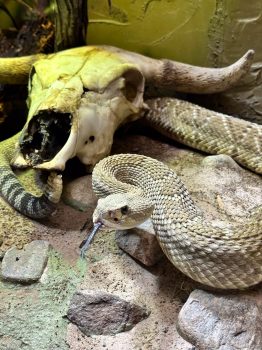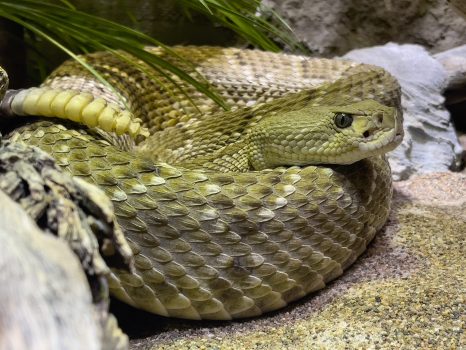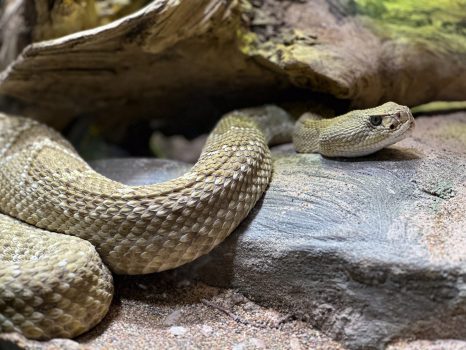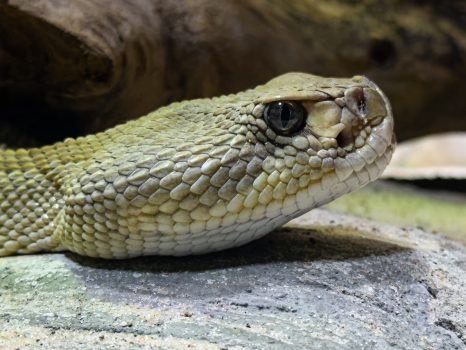Western Diamondback Rattlesnake
Common Name: Western Diamondback Rattlesnake
Scientific Name: Crotalus atrox
Names: Tucson
Locations: Whitby




Diet
Western Diamondback Rattlesnakes are carnivorous predators, primarily feeding on small mammals such as rodents (mice, rats, rabbits), birds, and occasionally reptiles.
Average lifespan
In the wild, Western Diamondback Rattlesnakes typically live around 10 to 20 years, though some individuals may live longer under optimal conditions.
Size
Western Diamondback Rattlesnakes are large and robust snakes, with adults reaching lengths of up to 1.2 to 1.5 meters (4 to 5 feet) on average, though larger specimens have been recorded.
Weight
Adult Western Diamondback Rattlesnakes can weigh anywhere from 1 to 4 kilograms (2.2 to 8.8 pounds), with females generally being larger and heavier than males.
About
Western Diamondback Rattlesnakes are native to the southwestern United States and northern Mexico, where they inhabit a variety of habitats including deserts, grasslands, scrublands, and rocky outcrops.
Size and behavior
Western Diamondback Rattlesnakes are named for the distinctive diamond-shaped markings along their backs and their characteristic rattle at the end of their tails, which they use as a warning signal when threatened. They are ambush predators, lying in wait for prey to pass by before striking with precision. Despite their fearsome reputation, they are generally shy and reclusive snakes, preferring to avoid confrontations with humans and other animals.
Diet and nutrition
Western Diamondback Rattlesnakes primarily feed on small mammals such as rodents, birds, and occasionally reptiles. They use their heat-sensitive pits on their heads to detect the presence of warm-blooded prey, even in complete darkness. Their venom is primarily used to immobilize prey, allowing them to swallow it whole.
Conservation status
The conservation status of Western Diamondback Rattlesnakes is currently of least concern. While they may face localized threats from habitat loss, persecution, and road mortality in some areas, they are still relatively common and widespread throughout their range. However, like many snake species, they may be impacted by habitat destruction and human activities.
Fun fact
Western Diamondback Rattlesnakes play an important role in their ecosystems as both predators and prey. They help control rodent populations, which can have significant impacts on agriculture and human health. Additionally, their rattling behavior serves as a warning signal to potential threats, allowing them to avoid confrontations and minimize the risk of injury. Despite their venomous nature, Western Diamondback Rattlesnakes are valuable members of their ecosystems and are protected in many areas where they are found.
Call or visit your local Reptilia Facility to learn how you can adopt one of these amazing reptiles.










